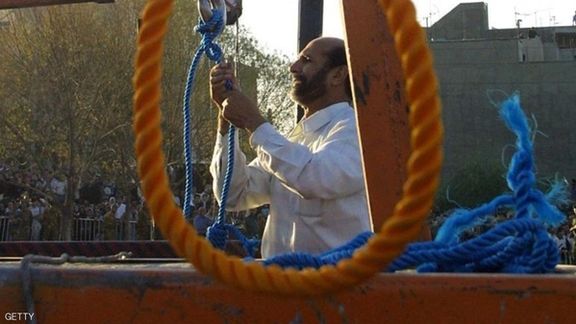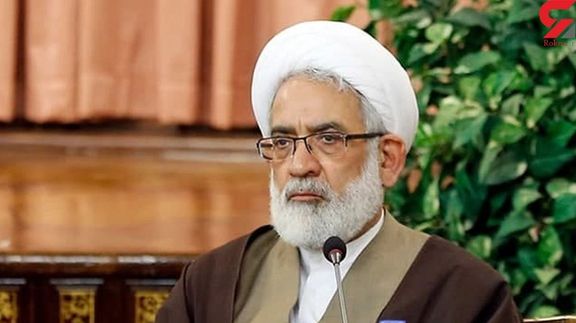Court In Iran Issues First Death Sentence For A Protester

A Revolutionary Court in Iran has issued the first death penalty against a protester and another court sentenced five others from five to 10 years in jail each.

A Revolutionary Court in Iran has issued the first death penalty against a protester and another court sentenced five others from five to 10 years in jail each.
According to the Iranian Judiciary, this is only the starting point of trials for those arrested during the protests in the past two months and further trials will be held later.
The Iranian Judiciary has not named the prisoners but claimed that the young man sentenced to death had allegedly set fire to a government office building.
The verdicts have been issued by a "court of first instance" and may be changed if those convicted refer the case to a court of appeal.
No one knows when and where the trials were held or if the accused had a chance to defend themselves. In most similar cases the government does not allow defendants to choose their own lawyers and there is no due process of law.
Meanwhile, the Iranian Prosecutor General, Mohammad Jafar Montazeri has repeated claims that "the ongoing protests in Iran are being steered by the United States and other Western countries. They have deceived some of the protesters and paid some others to stop the Islamic Republic's progress."
Montazeri claimed that protesters have killed some 40 Revolutionary Guards, Basij militia and other security officers so far.

The first verdicts against Iranian protesters have been issued about a week after some 227 Iranian lawmakers called for the execution of detained protesters. However, during the past two days some of them have attempted to deny the report after extremely strong condemnations by other politicians, pundits and social media users.
Some activists on social media have threatened to fight back violently and go beyond turban-tossing as their response to executions of protesters by the hardliner Judiciary and security forces.
Prosecutor Montazeri added that although courts have been ordered to investigate the cases quickly, still trials may take longer than expected as hearing sessions need to be furthered diligently.
In the meantime, Iranian pundits advised both the government and protesters to avoid radicalism. Political activist Mansoor Haghighatpur told Nameh News website that "both left-wing and right-wing radicals in Iran have gone too far, and the Islamic Republic should get rid of both."
He added that the radicals prevented the fruition of negotiations to revive the 2015 nuclear deal, attacked the Saudi and British embassies in Iran and caused many further losses to the Islamic Republic and the people of Iran." He was referring to hardliners loyal to the core of the regime controlled by the 83-year-old ruler Ali Khamenei and the Revolutionary Guard. These elements operate freely when needed as was the case with the attack and destruction of the Saudi embassy in January 2016, when no one was punished.
Haghighatpur added that the officials must ensure the participation of all political groups in decision making if the country is going to be run based on democracy.
He argued that the government should help people to voice their demands and it must use the state television and social media for this purpose. This comes while the government has banned access to social media and the state television has been condemned by many for its unilateral approach to programming. Haghighatpur also said that people should be allowed to gather in front of the Parliament (Majles) to voice their political demands.
“We saw them attacking moderate politicians” such as Hassan Khomeini, Ali Akbar Nateq Nouri and Ali Larijani during their speeches. "If radicals are allowed to be active, they will cause further damage to the regime," Haghighatpur said, without alluding to who controls and directs these forces.